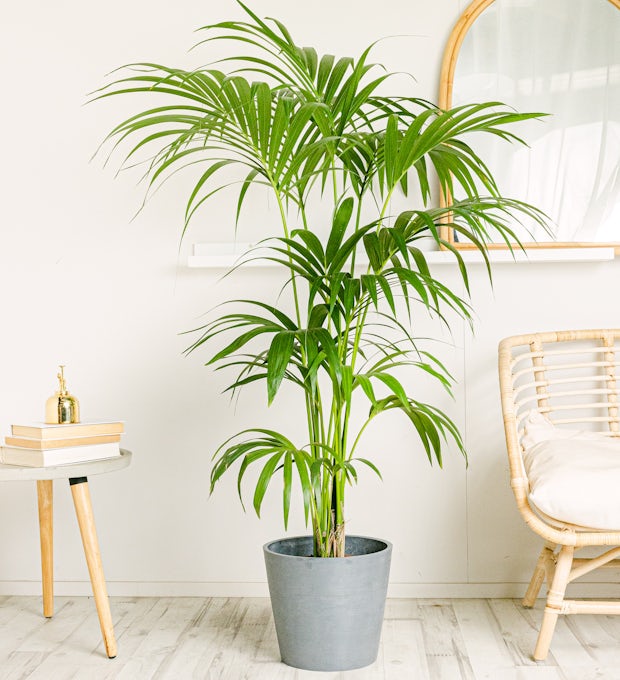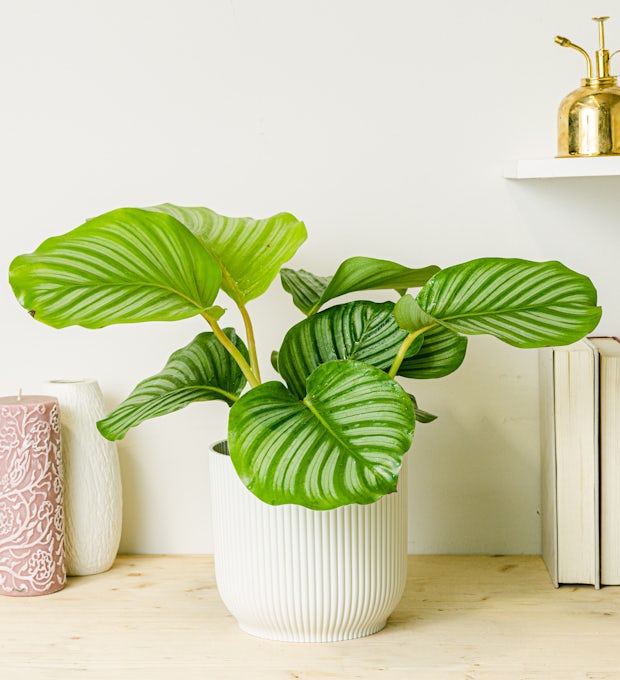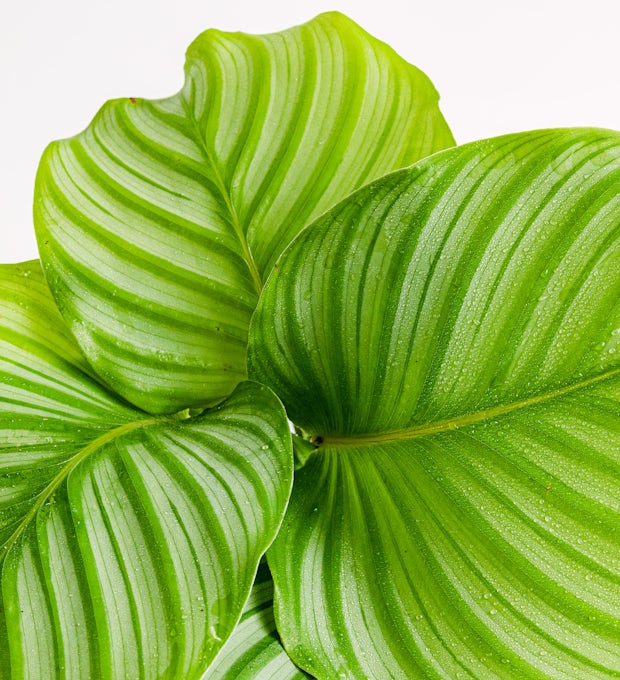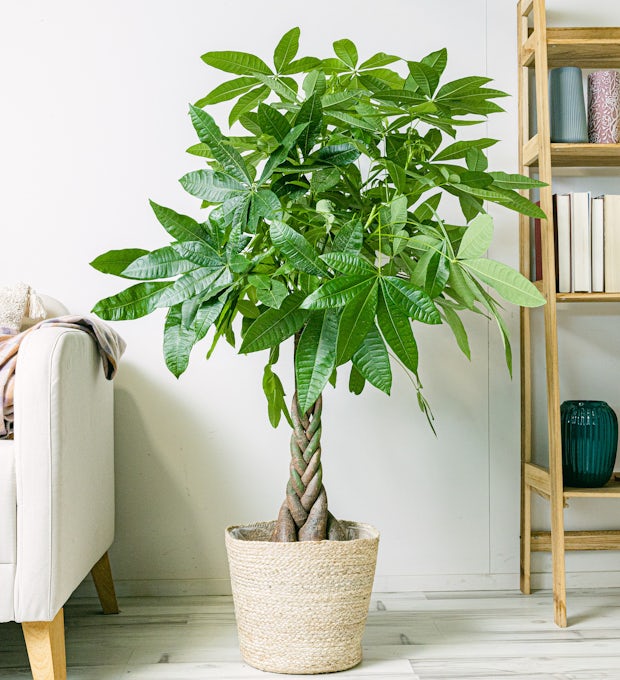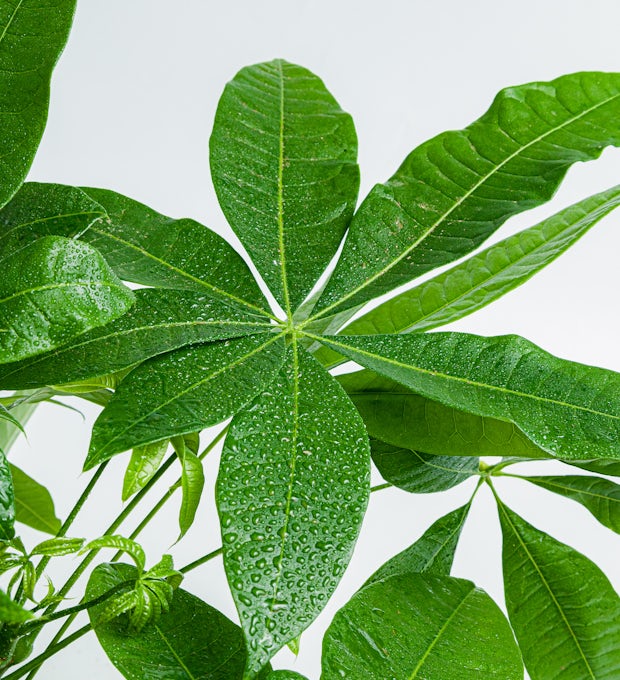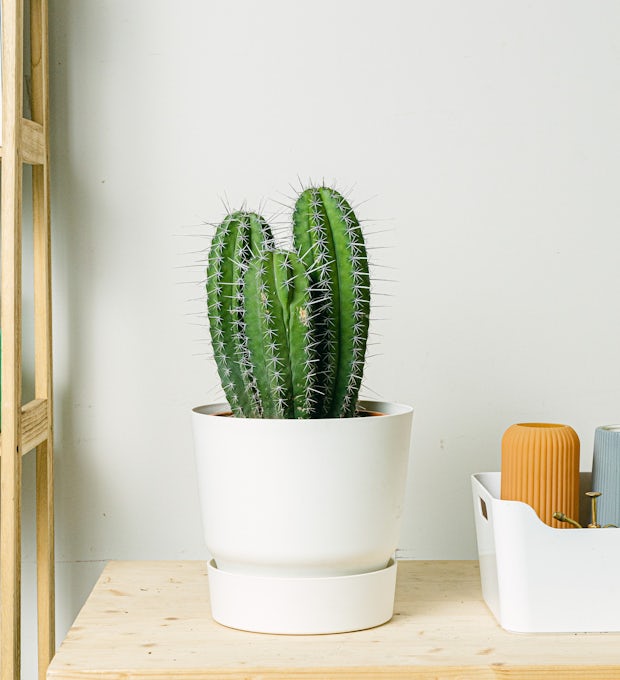Nature therapy at home is an effective and accessible way to improve our mental health. In this article, we'll explore the therapeutic power of plants and how to choose the perfect species for our home. In addition, we will provide tips and tricks to properly care for our plants, as well as a list of species that will help us combat stress and anxiety. We'll also discover which plants improve indoor air quality and promote restful sleep. Finally, we will explore gardening as a form of therapy that allows us to connect with nature and enjoy its benefits. Join us on this journey to mental wellness!
The Therapeutic Power of Plants
Plants have a therapeutic power that can benefit our mental health in many ways. Scientific studies have shown that being close to nature and surrounding ourselves with plants can reduce stress, anxiety, and improve our mood. This is because plants release oxygen and absorb carbon dioxide, which improves air quality and provides us with a feeling of freshness and well-being. In addition, the simple act of caring for and observing the growth of plants can be relaxing and rewarding. By interacting with them, we disconnect from daily stress and connect with nature, which has a positive effect on our mental health. Plants have also been shown to increase productivity and concentration, so having them in our home or workplace can improve our performance in daily tasks. In short, plants have an undeniable therapeutic power that can improve our mental health by reducing stress, anxiety, and improving our mood.
How to Choose the Perfect Plants for Your Home
To choose the perfect plants for your home, it's important to consider several factors. First, you need to consider the climate in your area and the amount of Natural light your home receives. If you live in a place with few hours of sunshine, it's best to opt for plants that don't need as much light, such as ferns or succulents. On the other hand, if your home has a lot of natural light, you can choose plants that require more sun, such as cacti or begonias.
It's also important to consider the size and space available in your home. If you have a small space, you can opt for hanging plants or small plants such as bonsai. On the other hand, if you have a large space, you can choose larger plants such as ficus or palm trees.
Another factor to consider is the care each plant requires. If you don't have a lot of time to devote to plant care, it's best to opt for those that don't need as much watering or pruning. Succulents and cacti are a good choice for those who are short on time.
Finally, you can also consider the purpose you want your plants to serve. If you want to purify the indoor air in your home, you can opt for plants such as mother-in-law's tongue or English ivy. If you're looking to combat stress and anxiety, aromatic plants such as lavender or rosemary can be an excellent option.
We ship plants to all locations, you can see more options here.
Plant Care: Tips and Tricks
Plant Care: Tips and Tricks
Keeping plants at home is not only a way to decorate, but also to take care of our mental health. However, in order for them to provide us with their full benefits, it is important to know how to take care of them properly. Here are some tips and tricks for caring for your plants at home.
First, it's critical to understand the specific needs of each plant. Some require more direct sunlight, while others prefer shade. In addition, each species has different watering and fertilization needs. Research the characteristics of your plants and make sure you provide them with the optimal conditions for their growth.
Watering is a key aspect of plant care. It's important to water them regularly, but avoid overwatering, as this can lead to disease or root rot. Look at the soil and make sure it's moist but not soggy before watering again.
Choosing the right container is also relevant. Make sure the pots have good drainage to prevent water stagnation. In addition, you can use pots with plates underneath to collect excess water and prevent it from damaging furniture or floors.
Another helpful tip is to keep the leaves and flowers of your plants clean. Not only will this give them a more attractive look, but it will also allow them to photosynthesize better. Gently wipe the leaves with a damp cloth or spray water on them to remove any accumulated dust.
With these simple tips and tricks you will be able to keep your plants healthy and beautiful, enjoying the therapeutic benefits they offer in your home to the fullest. Remember to give them time and attention, as caring for plants can be a rewarding and relaxing activity in itself.
We ship plants to all locations, you can see more options here.
Plants to Combat Stress and Anxiety
Plants are a useful and effective tool for combating stress and anxiety. Some of the best choices include lavender, which has a soothing and calming scent that can reduce anxiety and improve sleep; jasmine, which also has a soothing scent and can help reduce anxiety levels and improve sleep quality; and peppermint, which has a fresh, revitalizing scent that can help relieve stress and muscle tension. Other beneficial plants for combating stress include valerian, which can help reduce anxiety levels and improve sleep; aloe vera, which can help reduce stress thanks to its anti-inflammatory and antioxidant properties; and catnip, which can help reduce anxiety levels in cats and can also have a calming effect on humans.
It's important to remember that everyone is different, so some plants may work better for some people than others. Additionally, it is important to take proper care of the plants to ensure that they are healthy and can provide the desired benefits. When choosing plants to combat stress and anxiety, it is advisable to look for those that are easy to care for and adapt well to the home environment. With careful selection and proper care, plants can be an effective and natural way to relieve stress and improve mental health.
Plants That Improve Indoor Air Quality
There are many plants that can help improve the air quality inside our homes. Some of these plants are known as air purifiers, as they are able to remove toxins and pollutants from the environment. Among these plants are the bamboo palm, peace lily, sansevieria, ficus benjamina, and English ivy. These plants have the ability to filter the air and remove volatile organic compounds, such as formaldehyde and benzene, which can be harmful to our health. In addition, some plants can also increase oxygen levels in the environment and reduce carbon dioxide levels. Importantly, these plants not only improve indoor air quality, but they can also have a positive effect on our mental health by providing us with a sense of well-being and connection to nature. To get the most benefits from these plants, it is advisable to place them in rooms with poor ventilation or in places where chemicals or synthetic materials are found that can release toxins into the air. Additionally, it is important to take proper care of them to ensure that they remain effective in purifying indoor air.
Plants That Promote Restful Sleep
Plants can be great allies in promoting restful sleep and improving the quality of rest. Some plants emit scents that have a relaxing and sedative effect, helping to reduce stress and anxiety that can prevent you from falling asleep. One of the most popular plants for this purpose is lavender, which has been used for centuries as a natural remedy to combat insomnia. The scent of lavender helps lower heart rate and blood pressure, which can help relax the body and make it easier to sleep. Another beneficial plant for promoting sleep is valerian, the roots of which are used in many natural sleep supplements. Valerian has sedative properties that can help reduce the time needed to fall asleep and improve sleep quality. In addition, jasmine can also be a good choice thanks to its sweet and relaxing aroma, which can help decrease anxiety levels and promote deep, restful sleep. In conclusion, if you have trouble falling asleep or simply want to improve the quality of your rest, consider incorporating some of these plants into your bedroom to enjoy their therapeutic benefits.
Gardening as Therapy: A Way to Connect with Nature
Gardening as therapy is an effective way to connect with nature and improve mental health. By putting time and effort into caring for plants, you establish a deep connection to the natural world, which can have significant benefits for your mind and emotional well-being. The act of planting seeds, watering plants, and watching them grow can be a rewarding and therapeutic experience. In addition, gardening allows us to disconnect from daily worries and focus on the present, which helps reduce stress and anxiety. Scientific studies have shown that interacting with nature can decrease levels of the stress hormone cortisol and promote a sense of calm and relaxation. In addition, gardening can also improve our self-esteem and provide a sense of accomplishment by watching our plants grow and flourish thanks to our care. In short, gardening as therapy is an accessible and effective way to connect with nature, reduce stress, and improve our mental health.
All in all, nature therapy at home through plants can be a powerful tool to improve our mental health and overall well-being. Plants not only beautify our indoor spaces, but they also provide us with therapeutic benefits, from reducing stress and anxiety to improving air quality and promoting restful sleep. By taking care of our plants and connecting with nature, we can find a way of relaxation and connection that helps us find balance in our daily lives. So why not consider adding some plants to your home and experiencing the benefits for yourself? Nature therapy at home is an invitation to explore how we can incorporate more natural elements into our everyday lives and enjoy the positive effects this can have on our mental health
